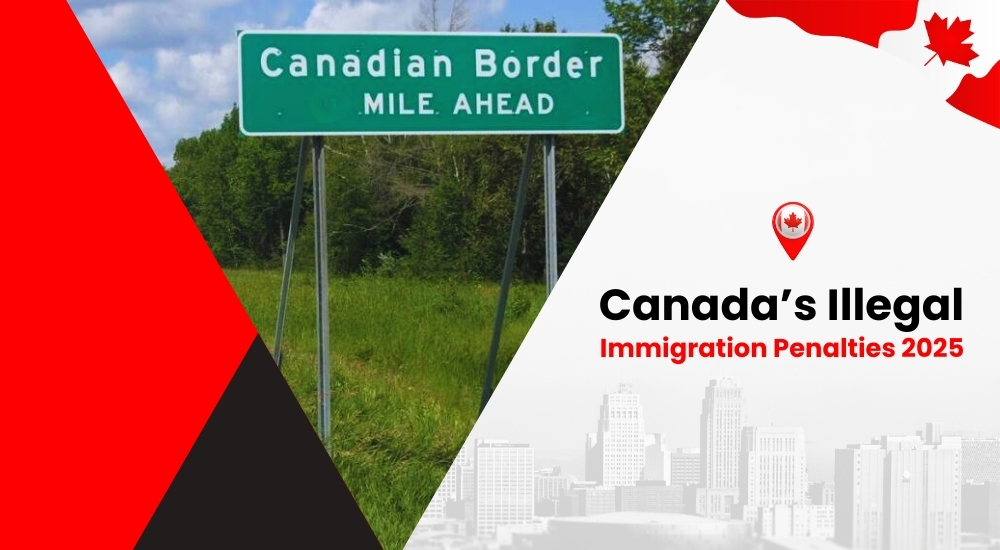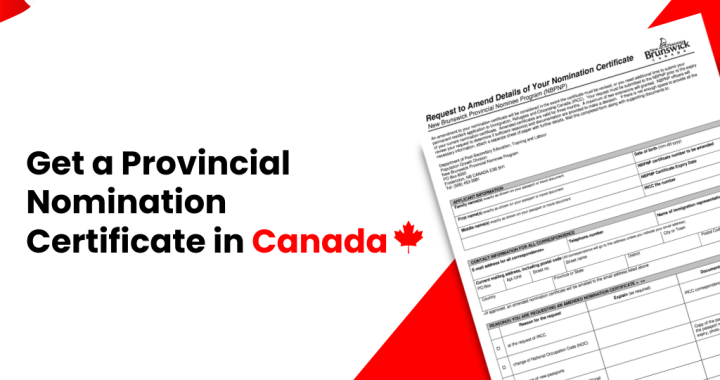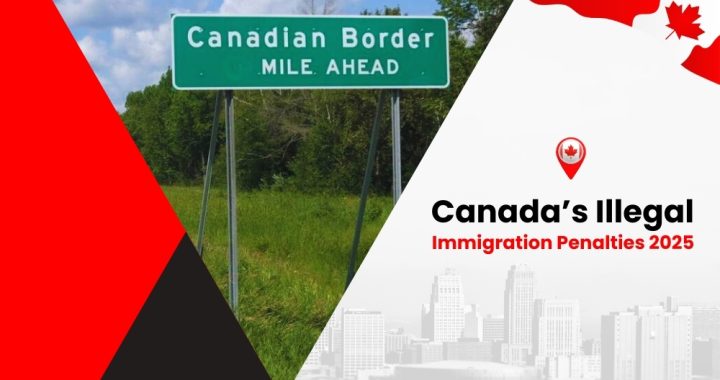
When addressing the question, What is the Penalty for Illegal Immigrants in Canada?, It’s crucial to explore the comprehensive framework established by the Immigration and Refugee Protection Act (IRPA). This legislation outlines a range of consequences designed to enforce immigration laws while balancing humanitarian considerations. The penalties vary in severity, depending on the nature of the violation, and include removal orders, monetary fines, imprisonment, and additional immigration-related restrictions.
However, exceptions exist, particularly for refugee claimants, reflecting Canada’s commitment to international obligations. In addition to removal, the IRPA permits monetary fines and imprisonment, though these are less frequently applied. Fines can be substantial, reaching up to $10,000 for illegal entry or $50,000, depending on offences.
Beyond removal and financial penalties, illegal immigrants may face further repercussions. One significant penalty is being barred from future immigration applications. This ban can last from one to five years.
Illegal Immigration in Canada: Penalties, Legal Consequences & How to Seek Help
Canada has a welcoming approach toward immigrants, but it also has strict immigration laws that regulate who can enter and stay in the country. Illegal Immigration in Canada: Penalties, Legal Consequences & How to Seek Help is an important topic, as those who enter or remain in the country unlawfully may face heavy penalties.
Here’s an overview of how Canada handles the issue of illegal immigrants, penalties and possible deportation.
Overview of Irregular Border Crossings
Irregular border crossings into Canada have seen a significant increase, especially since 2017, driven by various factors including changes in U.S. immigration policies and global refugee crises. Many asylum seekers opt for routes like Roxham Road, a well-known unofficial crossing point, to seek refuge in Canada.
Legal Framework – Asylum Seekers need to present themselves within 14 days of crossing to be eligible to seek asylum
The STCA, enacted in 2004, stipulates that individuals already in the U.S. cannot claim asylum at official Canadian ports of entry. This agreement was recently expanded to cover the entire U.S.-Canada border, making unauthorized crossings a critical issue for both governments.
Under the revised terms effective March 2025, migrants who cross without authorization are rendered ineligible for asylum unless they present themselves to authorities within 14 days of crossing.
Processing Asylum Seekers
When asylum seekers cross into Canada at irregular points like Roxham Road, they are intercepted by the Royal Canadian Mounted Police (RCMP). Upon interception, they must report to authorities to make their refugee claims. The process includes:
- Initial Screening: The RCMP and Canada Border Services Agency (CBSA) conduct checks for security threats and public health risks.
- Claim Assessment: Asylum claims are then assessed under the Immigration and Refugee Protection Act (IRPA). Those found eligible proceed with their claims, while others may face removal orders.
Illegal Crossing into Canada is not a Criminal Offence
While crossing irregularly is not classified as a criminal offense under Canadian law, it does carry implications under the STCA. If apprehended shortly after crossing, individuals may be turned back to the U.S. unless they qualify for exemptions (e.g., unaccompanied minors or those facing immediate danger) or can demonstrate a compelling need for protection.
Penalties for Illegal Immigrants in Canada
Individuals who enter Canada illegally or overstay their visa may face various penalties, including:
- Deportation: The most common penalty for illegal immigrants is removal from Canada. CBSA issues a removal order, which can be categorized as a departure order, exclusion order, or deportation order, depending on the severity of the case.
- Detention: Some illegal immigrants may be detained if authorities determine they pose a risk to public safety, are unlikely to appear for hearings, or lack proper identification.
- Fines and Bans: Illegal immigrants may face monetary fines and, in some cases, a ban on re-entry for a period of 1-5 years or even permanently.
- Criminal Charges: In cases where fraud or misrepresentation is involved, individuals can face criminal charges, leading to imprisonment or higher fines.
Special Cases: Asylum Seekers & Irregular Border Crossings
Not all individuals who enter Canada without proper documentation are considered illegal immigrants. Asylum seekers who cross into Canada irregularly can still apply for refugee status under international conventions.
How Canada Handles Asylum Claims at the Border
- Individuals who enter Canada and claim asylum are processed under the Immigration and Refugee Board (IRB).
- Those entering from the U.S. via official ports of entry may be subject to the Safe Third Country Agreement (STCA), which requires asylum seekers to apply in the first safe country they arrive in.
- Irregular border crossers (those entering at unofficial points) are generally detained, screened, and allowed to apply for refugee status.
Approximate Expenses to Defend an Asylum Application or Deportation:
The costs associated with defending an asylum application or challenging a removal order can vary significantly. Applicant would have to incur expenses on –
- Hiring an immigration lawyer,
- Translation and Documentation of documents to be submitted,
- Court Fees
- and Detention Costs
While it would be difficult to give an estimate for costs for a case, as each case can have its unique peculiarities, here are some estimates:
- Asylum application legal fees: CAD 2,000 – 7,000 (lawyer fees, application costs)
- Deportation defense: CAD 3,000 – 10,000+ (depending on case complexity)
- Federal Court appeals: CAD 5,000 – 15,000
- Humanitarian and Compassionate (H&C) applications: CAD 2,500 – 6,000
Consequences of Failed Asylum Claims
If an asylum claim is denied, the applicant may be subject to:
- Removal orders
- Appeal options, including applying to the Refugee Appeal Division (RAD) or seeking a judicial review at the Federal Court
- Voluntary departure or forced deportation
Common Misconceptions About Penalties for Illegal Immigrants
There are several myths surrounding penalties for illegal immigrants in Canada:
- Canada does not deport illegal immigrants.” False—Canada actively removes individuals who do not have legal status.
- An illegal immigrant can get permanent residency if they stay long enough.” False—there is no law granting automatic residency to long-term illegal immigrants.
- Illegal immigrants can access full social benefits.” False—most benefits require legal status, except for emergency medical care.
Can Any NGO Bodies in Canada Help and Support Asylum Seekers?
Asylum seekers facing challenges due to irregular crossings can access support from various organizations and legal aid services. NGOs play a crucial role in providing legal assistance and resources for navigating the asylum process. Some of these NGOs are-
- Canadian Council for Refugees (CCR)
- Migrant Workers Alliance for Change
- The Refugee Hub
- Legal Aid Ontario, BC, and other provinces
- Toronto Refugee Affairs Council
Frequently Asked Questions
Can an illegal immigrant apply for permanent residency in Canada?
No, individuals must first obtain legal status through refugee claims, sponsorship, or other immigration pathways.
What happens if I overstay my visa in Canada?
Overstaying can lead to removal orders, fines, and bans on future entry.
Can I work in Canada if I am an illegal immigrant?
No, working without a valid work permit is illegal and can result in penalties.
Is there a way to regularize status as an illegal immigrant?
Some individuals may apply under Humanitarian and Compassionate (H&C) grounds, but approval rates are low.
How long does the deportation process take?
It varies—some cases are resolved within months, while appeals and legal processes can take years.
Concluding, being an illegal immigrant in Canada is not a criminal offense, but it can lead to removal from the country. It can also attract penalties that include deportation orders, which may bar re-entry, and potential fines for illegal work, up to $50,000 for employers and employees. However, for asylum seekers, there would be no penalties during claim processing if recognized as refugees, and in case of failed claims no penalty but could result in removal.

 How to Get a Provincial Nomination Certificate in Canada
How to Get a Provincial Nomination Certificate in Canada  Can Americans Work in Canada?
Can Americans Work in Canada?  How to Convert a Visitor Visa to a Work Permit in Canada
How to Convert a Visitor Visa to a Work Permit in Canada  Canada Immigration Rules 2025
Canada Immigration Rules 2025  PR Card Renewal in Canada: Steps, Fees & Eligibility
PR Card Renewal in Canada: Steps, Fees & Eligibility  How to Write an Support Letter for Immigration Canada
How to Write an Support Letter for Immigration Canada  Canada’s Illegal Immigration Penalties 2025
Canada’s Illegal Immigration Penalties 2025